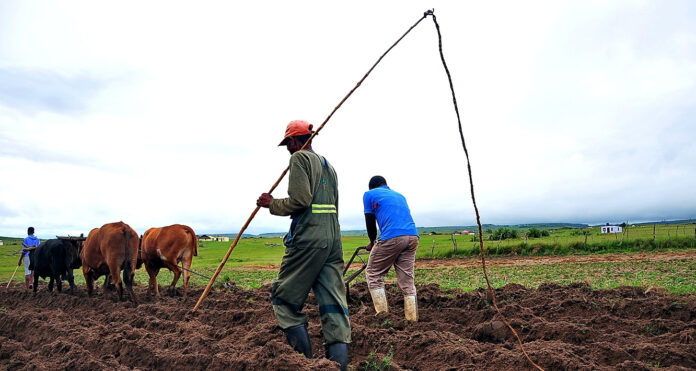President Cyril Ramaphosa’s State of the Nation Address (Sona) failed to address the scourge of illegal mining and land reform, which are high up among the most pressing issues facing the country today.
At least 79 people died in Stilfontein, North West, last month following a two-month standoff between zama zamas (illegal miners) and law enforcement officers.
Illegal mining
Illegal mining remains one of the key challenges facing communities. And this has led to the government establishing Operation Vula Umgodi, which has resulted in the arrest of thousands of suspects.
However, more was expected from Ramaphosa as illegal mining impacts on communities that have to deal with crime, intimidation and destruction of infrastructure caused by zama zamas.
Instead, the president could only muster a meek, by-the-way reference to the scourge.
“We are breathing new life into the mining industry, which remains one of our most important and valuable endowments. And we are on track to implement a new, modern and transparent mining rights system this year, which will unlock investment in exploration and production. We will put in place an enabling policy and regulatory framework for critical minerals,” Ramaphosa said.
Valuable natural resources
“By beneficiating these minerals here in South Africa, we can make use of the extraordinary wealth that lies beneath our soil for the benefit of our people. Even more valuable than our natural resources are the diversity, energy and talent of the South African people.”
As in previous Sonas, Ramaphosa steered clear of the land reform and restitution matter, which has since the 2012 election become a burning issue among the electorate and favourite political football of politicians.
Although land restitution remains a critical issue and has become the subject of an international spat involving the US, Ramaphosa steered clear of the matter. This is in the backdrop of a 2017 land audit, which revealed that land ownership dynamics have not changed much since 1994.
Land Audit report
The 2017 Land Audit conducted by the Department of Rural Development and Land Reform found that although black South Africans comprised 79% of the population, they had only 1.2% of direct ownership of the country’s rural land.
The audit also revealed that black South Africans owned just 7% of formally registered property in towns and cities. The majority of the land remained in the hands of whites who made up just 9% of the country’s population. But d they directly owned 23.6% of the country’s rural land, and 11.4% of land in towns and cities.



